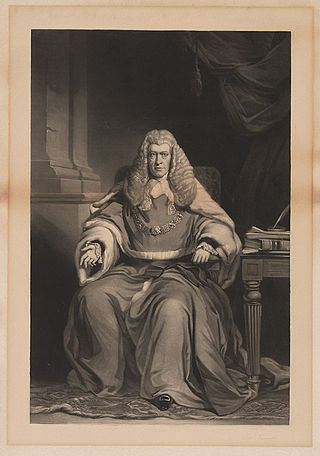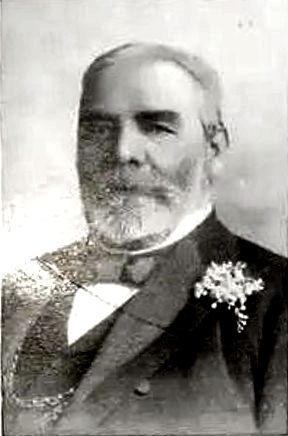
Earl of Chichester is a title that has been created three times, twice in the Peerage of England and once in the Peerage of the United Kingdom. The current title was created in the Peerage of the United Kingdom in 1801 for Thomas Pelham, 2nd Baron Pelham of Stanmer.
There have been six Baronetcies created for persons with the surname Brown, one in the Baronetage of Nova Scotia, one in the Baronetage of England, two in the Baronetage of Great Britain and two in the Baronetage of the United Kingdom. Two creations are extant as of 2010.

There have been six baronetcies created for persons with the surname Smyth, two in the Baronetage of England, one in the Baronetage of Great Britain, one in the Baronetage of Ireland and two in the Baronetage of the United Kingdom. One creation is extant as of 2010.
The Royden Baronetcy, of Frankby Hall in the County Palatine of Chester, is a title in the Baronetage of the United Kingdom. It was created on 29 July 1905 for Thomas Royden, head of Thomas Royden & Sons, shipowners. He also served as Lord Mayor of Liverpool and represented Toxteth West in the House of Commons as a Conservative. His eldest son, the second Baronet, was Chairman of the Cunard Line and sat as Member of Parliament for Bootle. On 28 January 1944 he was created Baron Royden, of Frankby in the County Palatine of Chester, in the Peerage of the United Kingdom. However, the peerage became extinct on his death in 1950 while he was succeeded in the baronetcy by his younger brother, the third Baronet.

There have been five baronetcies created for people with the surname Pollock, one in the Baronetage of Nova Scotia and four in the Baronetage of the United Kingdom. As of 2017 three of the creations are extant. These three creations derive from the same family to which the 1703 baronetcy was granted; the Pollock ancestor of Sir Frederick Pollock, 1st Baronet and Sir George Pollock, 1st Baronet married his cousin, daughter of Sir Robert Pollock, 2nd Baronet.
Nineteen baronetcies have been created for persons with the surname Hamilton, eight in the Baronetage of Nova Scotia, one in the Baronetage of England, five in the Baronetage of Ireland, one in the Baronetage of Great Britain and four in the Baronetage of the United Kingdom. As of 2008 two creations are extant, two are dormant, two are either extinct or dormant and twelve extinct.
The Adair Baronetcy, of Flixton Hall in the County of Suffolk, was a title in the Baronetage of the United Kingdom. It was created on 2 August 1838 for Robert Adair. He was succeeded by his eldest son, the second Baronet. He sat as Member of Parliament for Cambridge. In 1873 he was created Baron Waveney, of South Elmham in the County of Suffolk, in the Peerage of the United Kingdom. The barony became extinct on his death in 1886 while he was succeeded in the baronetcy by his younger brother, Hugh Adair, the third Baronet. The latter had earlier represented Ipswich in Parliament. Two of his sons, the fourth and fifth Baronets, both succeeded in the title. The fifth Baronet's son, the sixth Baronet, was a major general in the British Army. The title became extinct on the latter's death in 1988.

There have been two baronetcies created for members of the Cochrane family, both in the Baronetage of the United Kingdom. One creation is extant.
There have been three baronetcies created for members of the Gore family, all in the Baronetage of Ireland. All three titles are extant. The family also holds two earldoms and a barony.
There have been nine baronetcies created for persons with the surname Moore, two in the Baronetage of England, one in the Baronetage of Ireland, two in the Baronetage of Great Britain and four in the Baronetage of the United Kingdom. As of 2014 two creations are extant and one is considered dormant.
There have been six baronetcies created for persons with the surname Newton, three in the Baronetage of England, one in the Baronetage of Nova Scotia and two in the Baronetage of the United Kingdom.
There have been two Baronetcies created for persons with the surname Pile, one in the Baronetage of England and one in the Baronetage of the United Kingdom.

There have been two baronetcies created for persons with the surname Bowman, both in the Baronetage of the United Kingdom.

There have been nine baronetcies created for persons with the surname Cooper, one in the Baronetage of England, one in the Baronetage of Ireland and seven in the Baronetage of the United Kingdom.
There have been two baronetcies created for persons with the surname Dunlop, with both in the Baronetage of the United Kingdom. One creation is extant as of 2007.
There have been six baronetcies created for persons with the surname King, one in the Baronetage of Ireland, one in the Baronetage of Great Britain and four in the Baronetage of the United Kingdom. Three of the creations are extant as of 2007.

The Worsley family is an English family that is derived from Sir Elias de Workesley, a Norman knight who was a youth at the time of the Norman conquest. He later accompanied Duke Robert II of Normandy on the First Crusade and was buried at Rhodes.
There have been three baronetcies created for persons with the surname Clayton, two in the Baronetage of Great Britain and one in the Baronetage of the United Kingdom. One creation is extant as of 2021.

There have been three baronetcies created for persons with the surname Carmichael, two in the Baronetage of Nova Scotia and one in the Baronetage of the United Kingdom.
Sir Ralph Howard, 1st Baronet was an Irish Whig politician and army officer.








